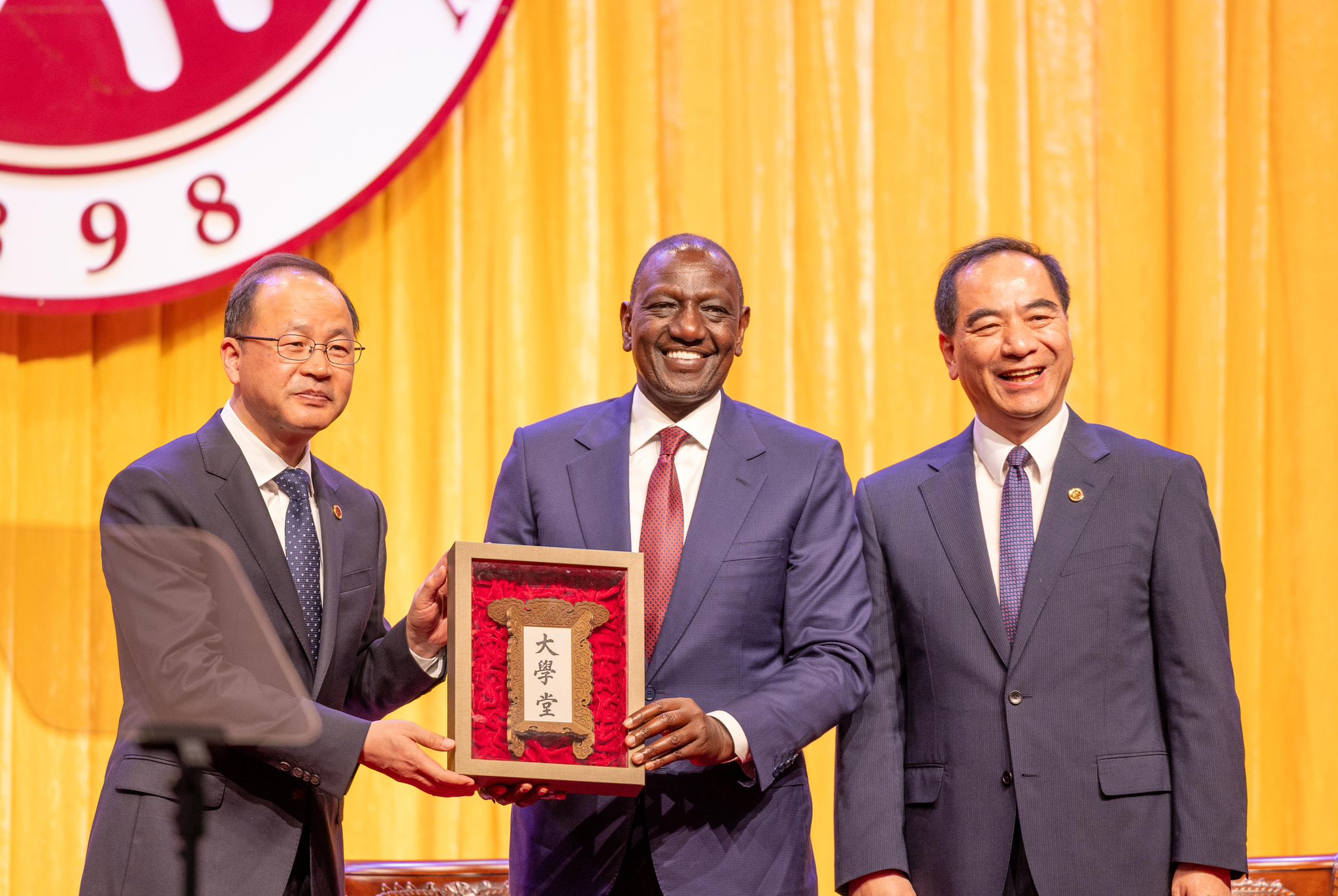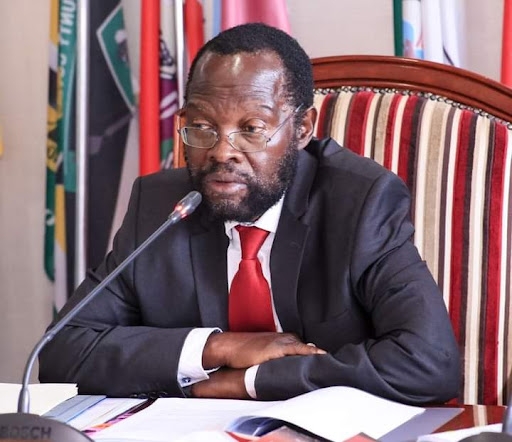
President William Ruto at Peking University in Beijing /PCS
President William Ruto has issued a strong call for the reform of global institutions and trade systems, declaring the current multilateral framework outdated and unfit for purpose.
He made the remarks while delivering a keynote speech at Peking University in Beijing.
Ruto began by lauding Peking University as a “global citadel of intellectual vibrancy,” and praised its role in fostering educational ties between China and Africa.
“Peking University has played a vital role in China–Africa educational relations,” he said, noting that the university has educated over 4,000 African students since 1956.
He highlighted the deepening educational and technological collaboration between Kenya and China, particularly in fields like AI, biotechnology, and the creative economy.
“Kenya’s 'Silicon Savannah' is established at our Konza Technopolis,” Ruto said, adding that Kenya’s upcoming National AI Strategy offers a platform for further collaboration.
Turning to global challenges, Ruto said the current multilateral order is no longer serving its intended purpose.
“The post-war multilateral system is broken, dysfunctional and no longer fit for purpose,” he stated.
He pointed to growing global issues such as climate change, cybersecurity, and economic shocks.
Ruto was especially critical of the United Nations Security Council.
“The Security Council, once a beacon for peace and diplomacy, now has one permanent member invading one country, while another member takes sides in conflict,” he said.
He called for a restructured Security Council with equal representation from all global regions.
On the global financial architecture, the President said it is outdated and misaligned with today’s realities.
“The Bretton Woods institutions… are shareholder institutions. The shareholders were also the primary stakeholders and beneficiaries,” he said.
He advocated for reforms that would transform these institutions into “independent, apolitical global institutions.”
Ruto addressed the climate crisis, emphasising Africa’s disproportionate burden. “Africa… bears the greatest burden through floods, droughts, displacement, and food insecurity,” he said.
He reiterated Kenya’s support for a global carbon taxation regime and praised China’s role in making renewable technologies affordable.
He also called for a rethinking of global trade, which he said is increasingly dominated by multinational supply chains rather than state-to-state exchange. “Actual trade flows… provide a very limited, maybe even distorted, view of international trade,” he observed.
On Africa’s growing demographic weight, Ruto noted: “By 2050, Africa will account for a quarter of the world’s workforce.” He urged investment to follow the workforce, calling demography and technology “irreversible structural forces” driving globalisation.
Ruto described Kenya as a diplomatic and innovation hub and reaffirmed the country’s non-aligned foreign policy. “We support the One-China Policy, a two-state solution in the Middle East, and dialogue… in the Russia–Ukraine conflict,” he said.
He concluded by urging Peking University to strengthen partnerships with Kenya.
“We envision a digital future that is Kenyan in location, African in identity, and global in impact,” he said.
“Kenya and China are not merely trade partners, we are co-architects of a new world order.”










